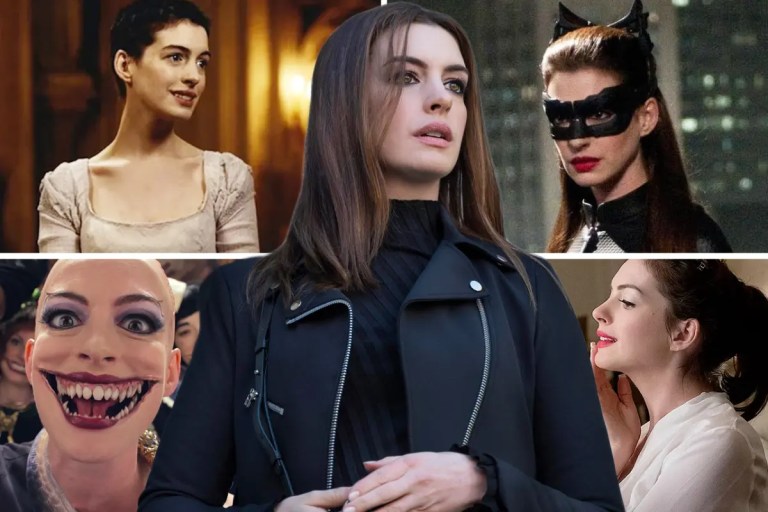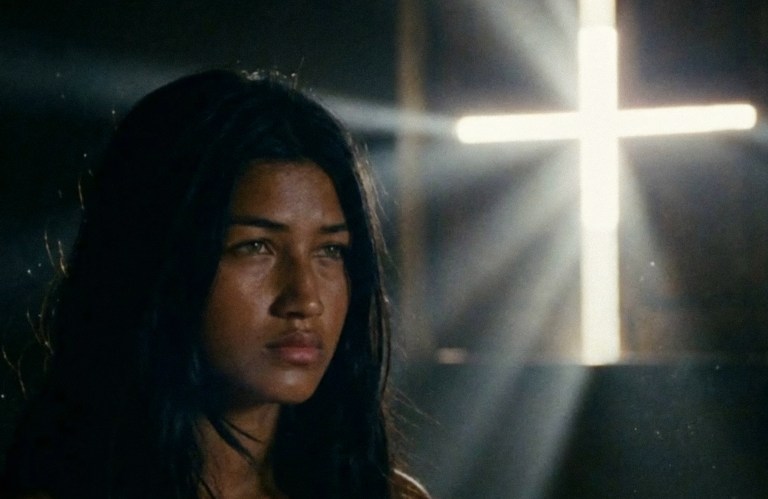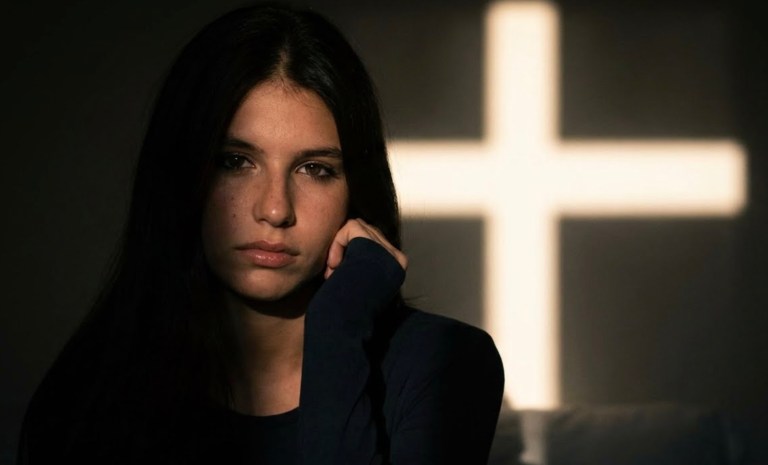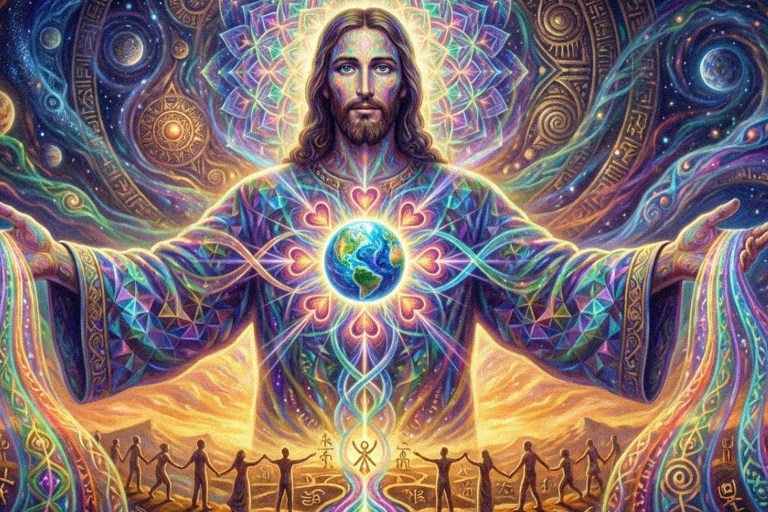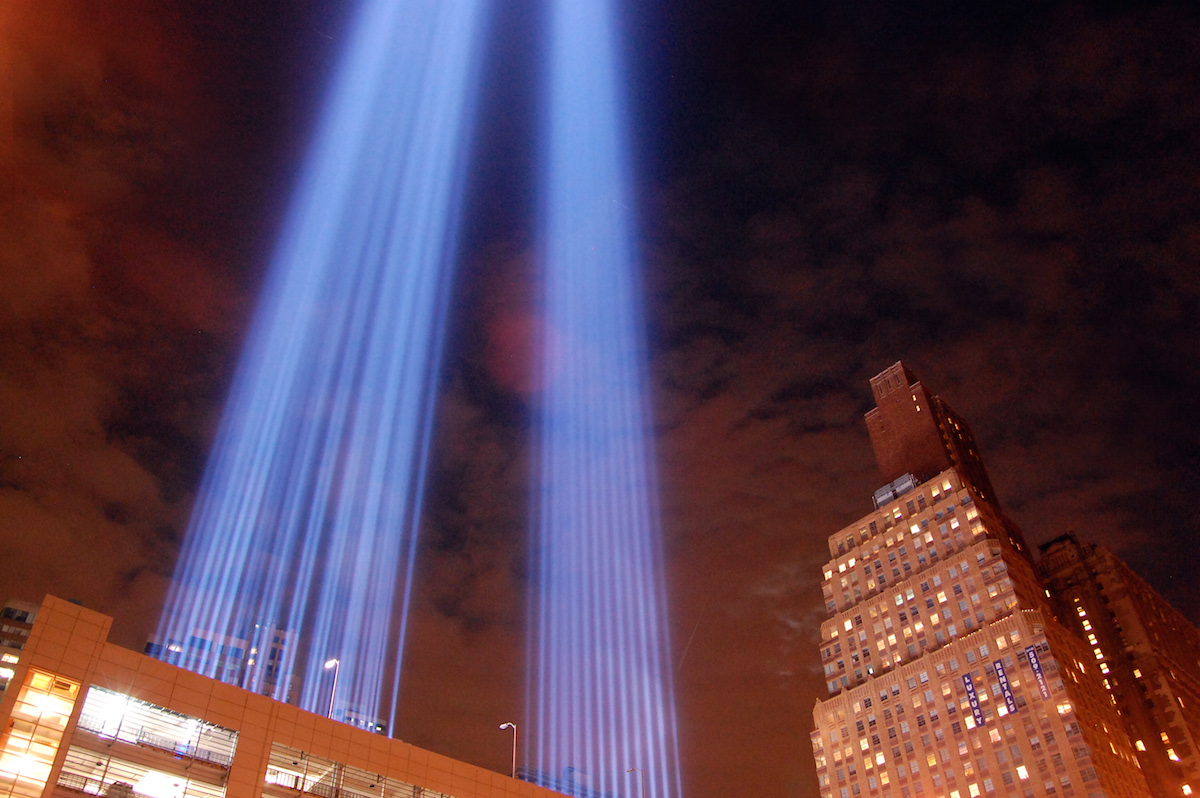
What It Was Like To Be A Kid On 9/11
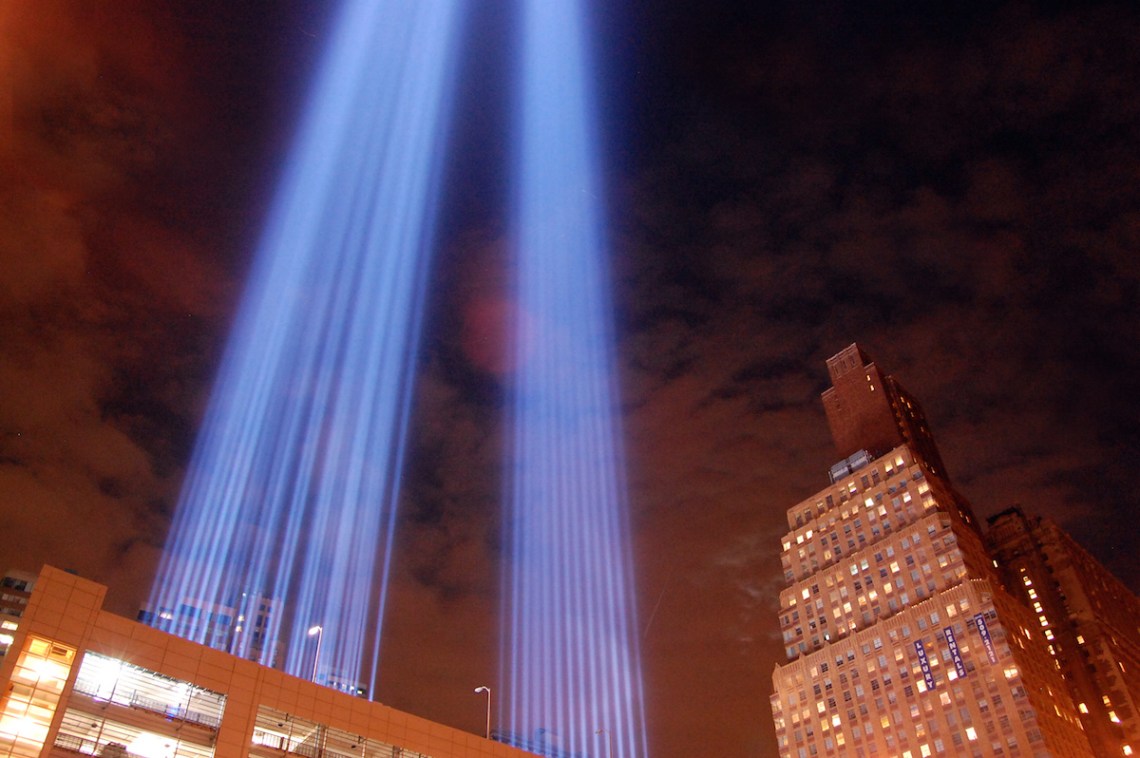
The Morning
I was in 5th grade on 9/11/01. I had just learned what a period was, I had never been kissed, I wore Spider-Man T-shirts from the boys’ section of Macy’s. I was 10 years old. I was young. I knew nothing.
I was sitting in the middle of my north New Jersey classroom when Wildwood Elementary’s school guidance counselor interrupted class to ask us a very exciting question. She was a maternal, nurturing lady. I had come to her a few times regarding making friends in my new school. She looked different, although I couldn’t put my finger on it. She was short of breath, as if this wasn’t the first classroom she had rushed into. I remember her voice being shaky, but she was usually so calm. She had that amazingly relaxing guidance counselor voice. I didn’t care why she looked nervous, the only thing that mattered was that she interrupted our morning class with a strange question. It was out of the ordinary. This had never happened.
She muttered, “Hi. I’m sorry to interrupt, but does anyone in this class have a parent who works in New York City?”
My dad worked in New York City, and I was always very proud of him and his work. Growing up in a conservative area of New Jersey, I thought my dad was the coolest person within miles, as he was an Editor for Nickelodeon. I shot my hand up with boastful excitement. The praise I was expecting to receive from the guidance counselor’s actually eyes spawned the complete opposite reaction. I’ll never forget how she looked at me: An adult had never looked at me like that. She pitied me. She was past concern. She was devastated for me in a way I had yet to understand, and I didn’t know why.
A few other kids raised their hands. Most people in our area worked in Manhattan. She looked at us with a terror I had never seen in an adult before, a terror I could not yet comprehend.
She hesitated, then struggled with her next few words:
“Ok. Did your father go to work this morning?”
“Yep.”
More silence.
She exchanged a glance with my teacher, then left in a hurry. My teacher looked concerned, but I don’t think she knew what was going on yet. The class resumed with no mention of that strange interaction.
I asked to go to the bathroom, and on my way there, I ran into my neighbor Joel. He said the teachers were all watching TV in the library. This was an absolute rarity. Televisions and libraries did not mix. Adding to the wildly bizarre mystique of this day, I asked him why.
He excitedly said, “I don’t know, but kids aren’t allowed in there.” We walked by the library, full of intrigue, trying to catch a glimpse of the action. We saw that big old TV strapped to a rolling cart that we got to watch on days when we had a substitute. That TV was so fun. We saw a bunch of teachers gathered around it. But before we could nurture our curiosity, a teacher saw us and rushed our wide-eyes away from the door.
I returned to Ms. Kenny’s science classroom and sat down. Ms. Kenny looked the same way my guidance counselor looked now, nervous. She was young. A redhead. Sweet. I wish I remembered more about the behaviors of others that day; I imagine there must have been teachers scrambling through the hallways, but all I remember was this sense of quiet panic, or panic that was meant to be hidden from us.
An announcement sounded over the loudspeaker requesting my neighbors and I to come to the office. How bizarre, I thought. I had never been called to the office without knowing why; it was always for getting in trouble, or leaving school early. And why were they requesting all my friends and I at once? I asked Ms. Kenny why so many kids were getting called to the office this day. She said I had a dentist appointment. Perplexing. In front of the whole class, I said, “no I don’t.” She urged me to go. Though stumped, I was excited to get called to the office with all my friends.
When I got to the office, my mom and dad were there with my neighbors and all the kids, my little sister included. We were all 10 or younger, and buzzing with excitement, wondering why we were so lucky to have our parents pick us up together. But something was up. Not all the parents were there. Both of mine were, but only the moms of my friends were there. I asked my parents what was going on, reassuring them that I didn’t have a dentist appointment. Our parents told us we were having another block party, ushering us out of the office and into the parking lot.
Our neighbors were very close, and two weeks earlier, we had had our annual block party. The kids were even more excited now. Our parents had finally become awesome: taking us out of school in the morning to recreate a second block party?! This day was turning out to be way more exciting than I had expected.
We all walked home together, as we lived a couple blocks from the elementary school. Just as we were approaching the Boulevard, my friend, who was the smart one of all of us, bragged, “I heard the World Trade Center burned down.”
“What’s that?” I inquired. I had never heard of it. She shrugged, unsure herself.
“I think it’s the Twin Towers.” Now that I knew. I loved the Twin Towers. Every time we visited dad at work, the best part was sitting on the Helix just before the Lincoln Tunnel and counting the three best buildings; The Empire State Building and the Twin Towers.
I don’t remember much between that moment and arriving home. My dad turned our big TV on and that was the first time I saw the image: My two favorite buildings on fire with a big hole in them.
“Are we not having a block party?” I asked desperately, stumped.
“We lied. We wanted us all to be together. We were scared.”
My mom had cried. I could tell.
“Of what?”
World Trade Center. Terrorists. The Middle East. These were words I had never heard before, or maybe I had but they didn’t have enough weight with me to stick. I didn’t understand.
As it turned out, my dad never made it into the city that day. He stopped at our friend’s house first and was going into work late. He was his own boss, so he could do that. He and his friend saw it happen on TV. Our neighbors’ dads weren’t home yet, though. They weren’t their own bosses. No one could reach them.
One of them called. One of them didn’t.
I remember the grueling waiting process all our neighbors went through. I put on a somber face because it seemed like I was supposed to. This day wasn’t the fun day I was expecting. It was a day of lies. I felt uncomfortable. I had never known anyone to die. I mean, I knew my grandparents would die at some point, but I didn’t know people could die like this.
I remember my neighbor’s mom collapsing in the street when her husband’s car pulled into the driveway. Or maybe I don’t remember it. Maybe I remember my parents’ recount of it every day for months. Everyone was home. Everyone was safe.
The Smoke
All of our families climbed to the top of The Tourne, a hiking mountain in our town that had an incredible view. We hiked the fun way, through the woods behind our neighborhood, which I had never done. Our parents were letting us do a lot of fun stuff. Everyone was together. Everyone was happier, but barely. I remember hearing the parents’ whispers of other parents who hadn’t heard from their spouse yet. It was all speculation, rumors.
When we reached the top of the Tourne, we could see for miles. I felt like we were on top of the world. We could see our rival sports towns. We could see so many trees. We could see New York City. We could see the smoke.
I remember taking a deep breath, realizing that the Empire State Building was alone now. How lonely for New York. My dad said I wouldn’t see the Twin Towers anymore. That upset me. Why not? They’re not gonna get fixed? This was the only loss I felt. I didn’t understand. I put my hand over my mouth like all the adults were doing.
I looked at my friends and could see it all over their faces; they didn’t understand either. We were just pretending to be sad because we knew we had to be— but we were so genuinely confused. We couldn’t understand why we were sad.
The Weeks Following
There was a great amount of loss in our area, in our town, in our school. It took days to confirm certain people’s death. Some were never confirmed, they were just never heard from again. I remember some kids didn’t show up to school for a few days. I remember Ms. Kenny’s classroom, and realizing one of the other kids who raised their hand at the guidance counselor’s weird question wasn’t there. He didn’t come back to school. His dad died. It was months before we saw him again.
There was so much speculation and rumor. I felt bad about it. I really did. I was happy my dad didn’t go into the city that day. A lot of my friends were happy like I was. I have endless recounts of stories from childhood friends whose parent had “just escaped,” parents who saved someone’s life, parents whose best friend died, parents who saw it all happen and couldn’t run, just stare…They were all just stories to me. It was the first time I came to understand the expression “it was a blessing.” Yes, it was a blessing my father’s day went the way it did. Most of my friends learned about “blessings” that day.
I thought about fate. I thought about how something in the universe prevented my dad and my friends’ parents from going to Manhattan. Something out there helped them, I thought. But no one helped the kids’ parents who did die. Why? They were all really amazing kids. Better than me, smarter than me. I didn’t get it. I was faced with a moral crisis; I didn’t get it.
It took years for the sadness to settle in. In the five anniversaries that followed, 9/11 was defined by confusion for me. The first anniversary, I was supposed to be sad again. I was supposed to remember. Of course I remembered. I was supposed to feel sad. But I didn’t.
On the second anniversary, I felt scared. I was 12, and I realized how scary terrorism was. I had nightmares about it. I started living in constant fear of being bombed, of war, of death. And so I was scared that it would happen again on the anniversary; they would pour salt in the wound.
A few years later, I cried. I finally understood what had happened. It was heartbreaking and upsetting and confusing. I wish I had said something to the boy in my class whose life changed that day. Those poor, innocent people were never the same. They were so good, so undeserving of such tragedy.
The Guilt
I felt survivor’s guilt. I understood why everyone was scared and sad that day, but I couldn’t understand why it had happened. I felt bad for engaging in the rumors and playground storytelling in the weeks that followed 9/11/01. My friends would gossip about how it all happened; how certain people we knew had died.
“I heard she watched a fireman die.”
“I heard his mom almost got out before it collapsed.”
“I heard she tried to kill herself after her brother died.”
“I heard she called him when the smoke filled her lungs. He heard her die.”
It was fucked up. It’s disgusting to look back on the things I heard on the playground those following weeks. But we didn’t understand. How could a child understand that kind of pain and terror?
13 years later, I’m disappointed in myself as a child for not feeling what I was supposed to. I’m angry that I didn’t react how I was supposed to, for being so unaware of my surroundings, of life. I was a kid. If the adults couldn’t understand, how could I?
I live in California now and a lot of people don’t get it, the way I didn’t get it. They were so far removed from it. They don’t know an innocent person who died. They don’t know the kid who didn’t come back to school for months, or the woman who spoke to her husband for the last time over the phone. They never had relatives call them and cry when they answered. I saw the smoke. I saw the pain before I felt the pain. I don’t feel guilty anymore for not understanding. Childhood is so precious. It’s so innocent. It’s something to be treasured and cherished. It’s sacred. But it cannot be protected. ![]()

